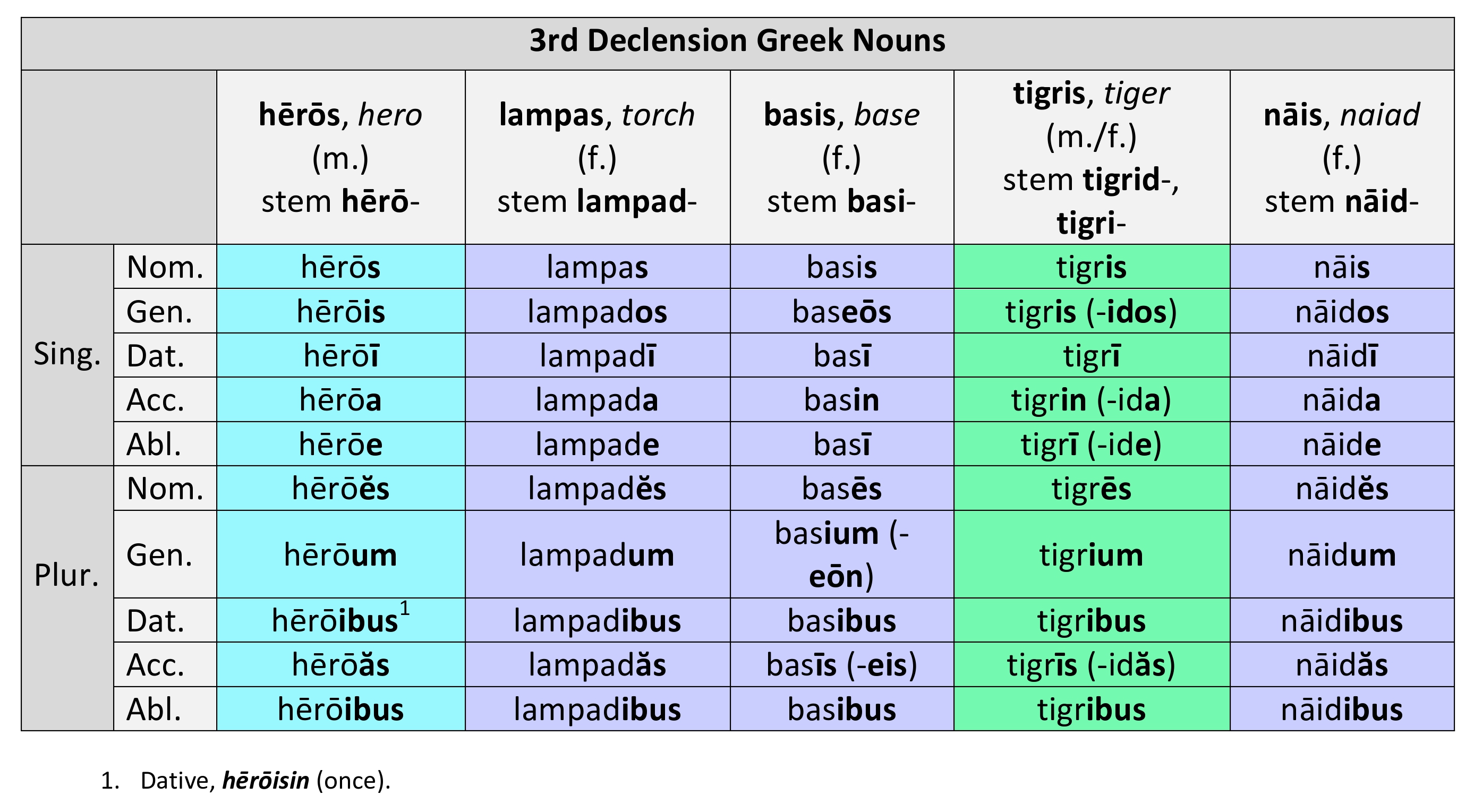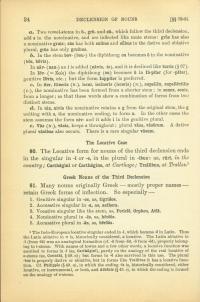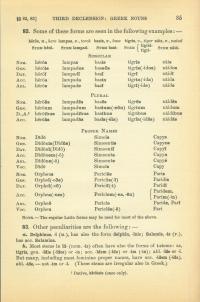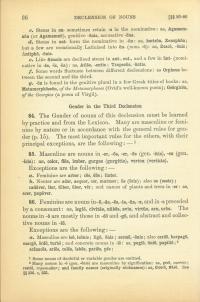81. Many nouns originally Greek—mostly proper names—retain Greek forms of inflection. So especially:
- Genitive singular in -o, as, tigridos.
- Accusative singular in -a, as, aethera.
- Vocative singular like the stem, as, Periclē, Orpheu, Atlā.
- Nominative plural in -ĕs, as, hērōĕs.
- Accusative plural in -ăs, as, hērōăs.
82. Some of these forms are seen in the following examples.
Note— The regular Latin forms may be used for most of the above.
83. Other peculiarities are the following.
a. Delphīnus, -ī (m.), has also the form delphīn, -īnis; Salamīs, -is (f.) has acc. Salamīna.
b. Most stems in ĭd- (nom. -is) often have also the forms of i-stems.
tigris, gen. -ĭdis (-ĭdos) or -is; acc. -ĭdem (-ĭda) or -im (-in); abl. -ĭde or -ī
But many, including most feminine proper names, have acc. -idem
(-ida); abl. -ide, not -im or -ī. (These stems are irregular also in Greek.)
c. Stems in on- sometimes retain -n in the nominative.
Agamemnōn (or Agamemnō), gen. -ŏnis, acc. -ŏna
d. Stems in ont- form the nominative in -ōn (horizōn, Xenophōn). But a few are occasionally Latinized into ōn- (nom. -ō).
Dracō, -ōnis
Antiphō, -ōnis
e. Like Simoīs are declined stems in ant-, ent-, and a few in ūnt- (nominative in -ās, -īs, -ūs).
Atlās, -antis
Trapezūs, -ūntis
f. Some words fluctuate between different declensions, as Orpheus between the 2nd and the 3rd.
g. -ōn is found in the Genitive plural in a few Greek titles of books.
Metamorphōseōn of the Metamorphoses (Ovid's poem)
Geōrgicōn of the Georgics (a poem of Virgil)





